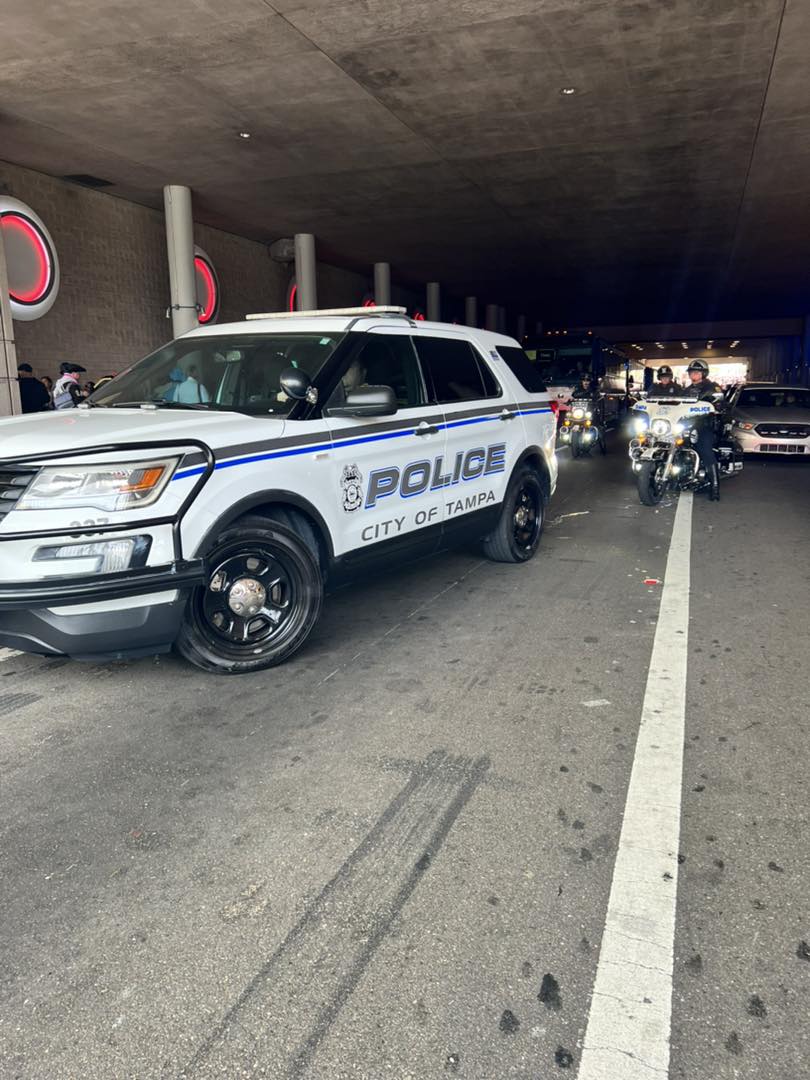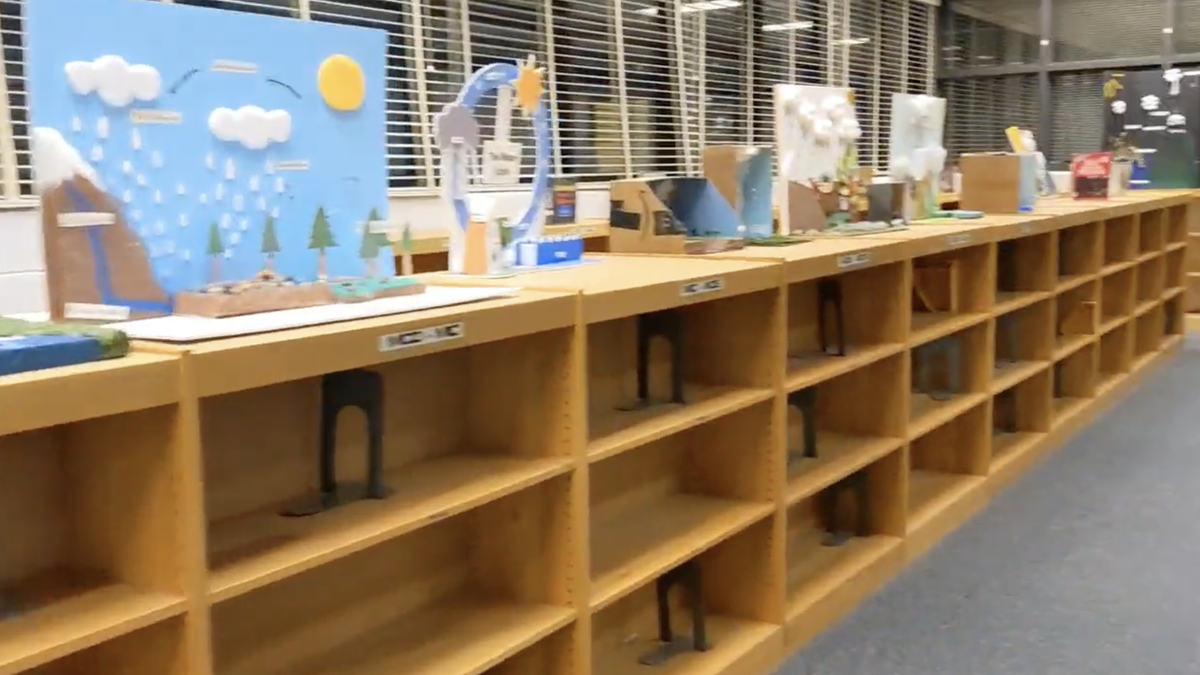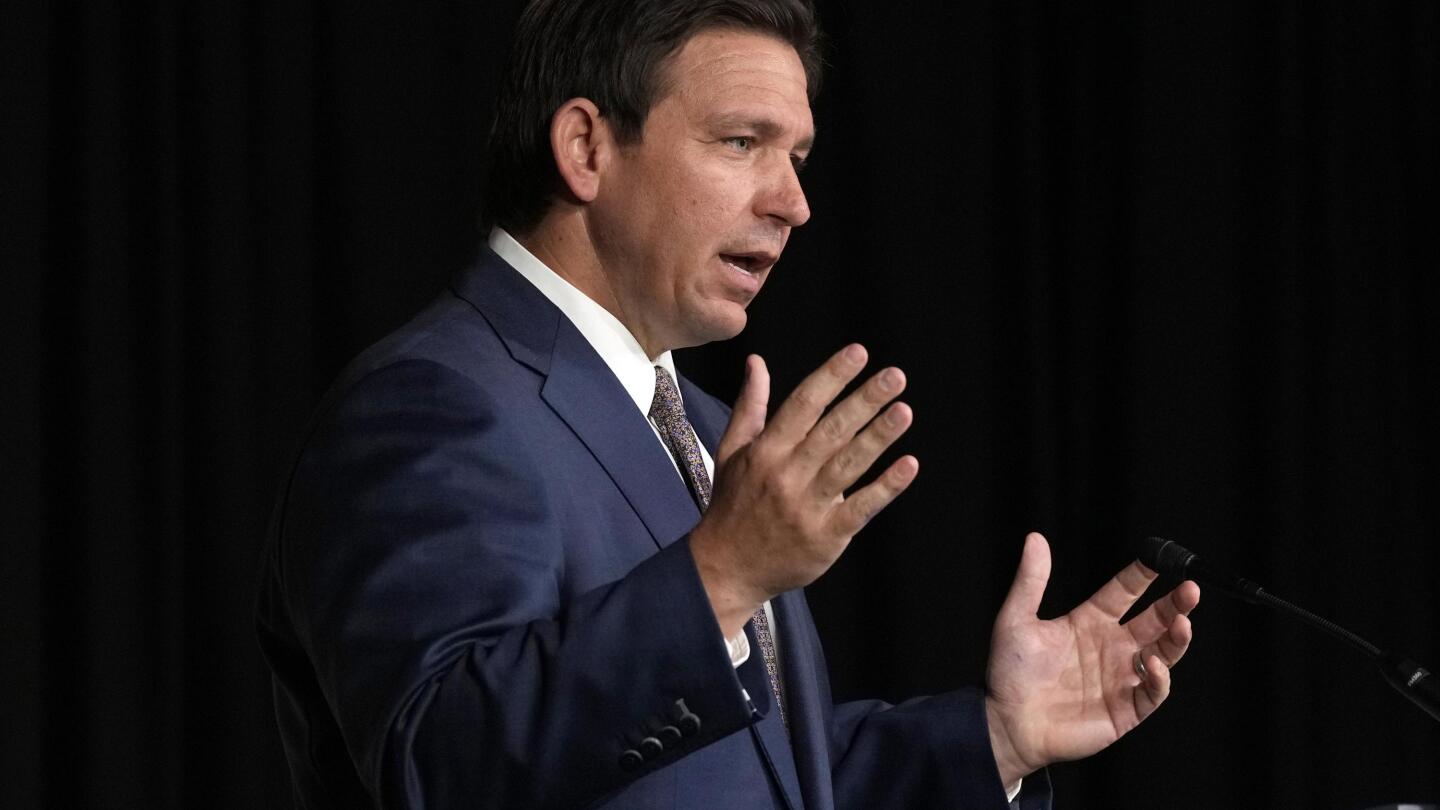You are using an out of date browser. It may not display this or other websites correctly.
You should upgrade or use an alternative browser.
You should upgrade or use an alternative browser.
Florida, Florida, Florida
- Thread starter CoffeeHorse
- Start date
He's taking the DeathSantis nickname seriously.
So, only if life is on the line, only in the one situation where it matters the most that they're clearly guilty, only then will they no longer need to be certain.
OK, who specifically is he trying to get rid of? Because he wouldn't be doing this if there weren't someone specific he's trying to bump off legally.
OK, who specifically is he trying to get rid of? Because he wouldn't be doing this if there weren't someone specific he's trying to bump off legally.
Black people. He's trying to eliminate black people. He is attempting to precipitate a new genocide in the US.

A Police Stop Is Enough to Make Someone Less Likely to Vote - Bolts
Florida Governor Ron DeSantis grabbed headlines throughout 2022 for practices that weakened democracy—from creating a police force to monitor voting to coordinating the arrests of people who allegedly voted illegally... Read More
 boltsmag.org
boltsmag.org
But a host of more routine decisions made by Florida officials may be undermining the health of the state’s elections as well, even when they don’t seem directly related to voting rights.
To replace Warren as state attorney of Hillsborough County (home to Tampa), DeSantis appointed Susan Lopez, a member of the conservative Federalist Society. One of Lopez’s first decisions was to rescind a policy implemented by Warren to not prosecute bicyclists and pedestrians for certain traffic charges. A 2015 Tampa Bay Times report exposed the Tampa police department’s relentless ticketing of Black cyclists for things like having inadequate lighting, or riding on handlebars, a dynamic local organizers have labeled “bicycling while Black.” The report catalyzed a Justice Department investigation which ultimately confirmed the disproportionate enforcement.
New research shows how such low-level interactions with the police can undercut our democracy by reducing the number of people who participate in elections. A study I co-authored with fellow researcher Kevin Morris, published in December in the American Political Science Review, finds that traffic stops by police stops in Hillsborough County reduced voter turnout in 2014, 2016, and 2018 federal elections.


Florida Teacher Is Fired for Posting Viral Video of Empty Classroom Bookshelves
The state is cracking down on books about racism and LGBTQ+ issues in schools, and teachers are now being punished for sounding the alarm.
 jezebel.com
jezebel.com
Brian Covey, a substitute teacher in Jacksonville, Florida, was fired this week for posting a video showing rows of empty bookshelves in his classroom in late January, which several local teachers did after schools in the Florida’s Manatee and Duval counties received a directive to “remove or cover all classroom libraries until all materials can be reviewed.”
The motive for Covey’s firing is pretty nakedly political, considering the timing: His video went viral last month; Gov. Ron DeSantis (R) was forced to address it on Wednesday at a press conference and called it a “fake narrative;” and Covey tweeted the next day that he’d been let go.
I am so glad I got out of Florida two decades ago.
Would be nice if blue states were a bit more affordable to live in. Even in a purple state, I'm having trouble finding a place that I can afford (but that's also because of having to pay off a ton of student loans that I'm likely not going to get any relief on).
But yeah. If I was in Florida I'd be looking for the exit, ASAP.
But yeah. If I was in Florida I'd be looking for the exit, ASAP.
Welp, looks like my nieces and nephew are gonna be idjits.

DeSantis takes over Disney district, punishing company
Florida Gov. Ron DeSantis has signed a bill that gives him control of Walt Disney World’s self-governing district, punishing the company over its opposition to the so-called “Don’t Say Gay” law.
Meanwhile...
(Source: - Ars Technica)
Two recent bills introduced at the state level could spell trouble for science education. One of them is in West Virginia, where the state Senate has approved a bill that would allow teachers to tell students that the Universe is the result of intelligent design, an idea that was developed to avoid prohibitions on teaching creationism. While a court held that teaching intelligent design was an unconstitutional imposition of religion, a recent Supreme Court decision weakened the legal foundations of that ruling.
Meanwhile, Florida's thinking much bigger, with the State House considering a bill that would say the legislature disapproves of college courses that cover "theoretical or exploratory" topics being used to fulfill general education requirements. That would seemingly rule out most science classes.
First, the second Virginia
The bill under consideration in West Virginia, Senate Bill 619, is a truly bizarre hybrid. Two of its provisions are basic housekeeping functions regarding the role of teachers in changing final grades and determining whether students are promoted to the following grade level. But then there's the third provision: "Teachers in public schools, including public charter schools, that include any one or more of grades kindergarten through 12, may teach intelligent design as a theory of how the universe and/or humanity came to exist."..
(Source: - Ars Technica)
Can I be honest, perhaps stereotyping a bit here, but I assumed that American schools taught creationism as the basic default. I was wrong, right?
In some areas, yeah. In others they either brush over evolution fairly quickly or just ignore the whole topic. American schools don't seek to educate, just to produce the next batch of menial laborers to feed the capitalist machine.
Oh, same as Britain then!In some areas, yeah. In others they either brush over evolution fairly quickly or just ignore the whole topic. American schools don't seek to educate, just to produce the next batch of menial laborers to feed the capitalist machine.
(Incidentally, I was taught Biology A-level by a teacher who refused to teach the evolution part of the syllabus for religious reasons, and claimed palaeontologists made most of the fossils up to give themselves jobs. She got uproariously laughed at by the students.)
Edit: I’ll add that I didn’t know what creationism was until I saw some of the online reaction to the Beast Wars episode Code of Hero.
Last edited:
Not legally, since we do have separation of church and state. And there was a big court case in 2005 that ruled that "intelligent design" was still creationism.Can I be honest, perhaps stereotyping a bit here, but I assumed that American schools taught creationism as the basic default. I was wrong, right?
The term "public" in the British use of "public school" and "public house" (or pub) were used to denote institutions, services or buildings that were open to, or for use by, the general public. Previously, education in the UK was only open to royalty and/or related parties but public schools in the UK were still privately run and funded (and thus still expensive and of relevance to mainly the upper classes). The American use of the term (especially in terms of education), refers to "STATE education" (which means GOVERNMENT, at either the American state or federal level).Oh, same as Britain then!Well, at least if you go to a state school – “public school” means elite private school over here, bizarrely.
(Incidentally, I was taught Biology A-level by a teacher who refused to teach the evolution part of the syllabus for religious reasons, and claimed palaeontologists made most of the fossils up to give themselves jobs. She got uproariously laughed at by the students.)
Edit: I’ll add that I didn’t know what creationism was until I saw some of the online reaction to the Beast Wars episode Code of Hero.
When I was taught about evolution at school, we were given a short disclaimer by the teacher that mentioned creationism very briefly and then it was onto the science. We were taught more about the Bible's views on creationism, or how it differed from science or other aspects, in various parts of our R.E. (Religious Education) or Sociology lessons.
Last edited:
